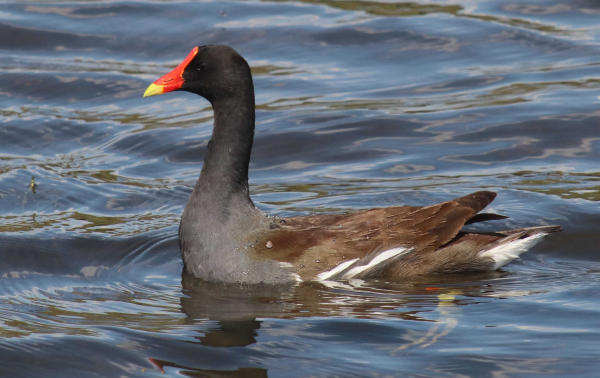
|
A Fork-tailed Flycatcher that showed up in Delaware brought back good memories for Peter Stangel. As a teen he stumbled across a super-rare Fork-tail in eastern Massachusetts and had fun hosting birders from around the state that wanted to add it to their life list. This member of the kingbird family is found in open grassland habitats from southern Mexico to southern South America. Birders find an individual or two regularly in the United States, usually in the east, usually in the fall.
Texas birders enjoyed views of a Northern Jacana at Hildalgo. These unique waterbirds have exceptionally long toes and claws that permit them to walk across lily pads floating on the water’s surface. Northern Jacanas normally range from Mexico south through Central America and east to many Caribbean isles.
A Masked Duck has been present near Shreveport, Louisiana. Similar in form to a Ruddy Duck but smaller, the male has a striking black face and rufous body in breeding plumage, while the lighter-colored female sports black stripes across her face. They tend to prefer wetlands with thick vegetation, making them hard to find. Masked Ducks range across the American tropics, and rarely are seen along the Gulf Coast of Texas.
A rare seabird, a Guadalupe Murrelet, turned up in Long Beach Harbor adjacent to Los Angeles, California. This island-nesting species is threatened by oil spills on the ocean and cats and other non-native predators introduced onto its nesting islands, which are off the west coast of Mexico. Another seabird, a Mottled Petrel, was seen in coastal British Columbia. This highly pelagic species nests primarily in New Zealand.
Notable for Colorado, a Common Gallinule was reported near Fort Collins, far northwest of this species normal range.
Roseate Spoonbills continue to make headlines, with birds reported most recently in New Jersey and Kansas. They normally range along Southeastern coastal wetlands.
For more information, refer to the American Birding Association’s website at www.aba.org